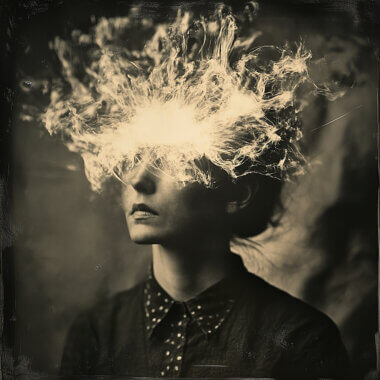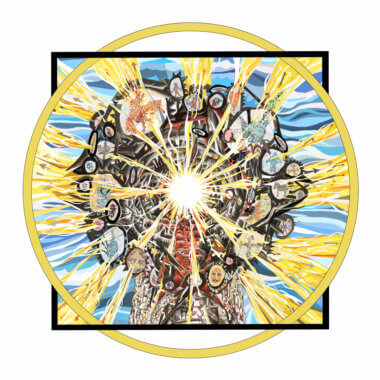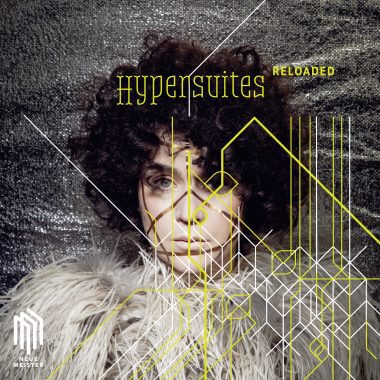Artists
Information
Genre |
Minimal Music |
Release Date |
12.10.2018 |
Information
Close your eyes. Think back to your childhood. To falling asleep. What do you hear? What do you remember hearing? Chances are it’s a lullaby.
For Damian Marhulets, his interest in this musical form stems from the birth of his daughter, a moment he felt would always arrive. "I've had this strange premonition since I was a teenager that I would be a father and have a daughter…I always knew it was going to happen," he explains. And yet when it did, it changed him profoundly – and musically – in ways he'd never imagined.
"We found a couple of lullabies on YouTube, and it was interesting to find a piece of music you can play for hours or days. Then I realised there are musical pieces which are very important to my child and my relationship with her, pieces that are not to get her to sleep but to help her wake. So I started thinking about the concept of the lullaby, which is a threshold song; a song to help you to get to the other side of your consciousness." And thus the seed for his dreamy, immersive new album, Lilith’s Lullabies, was sown.
Born in Minsk, Belarus, Marhulets has been surrounded by music since he was an infant. Encouraged by his father – his first teacher and role model – he excelled at oboe and piano; he played his first concert at five, and was accepted to the prestigious Minsk College of Music just one year later. He toured and performed with some of the most renowned orchestras in the country, but an adolescence spent focusing on traditional classical music left him restless and creatively unfulfilled.
"How many solo oboe players do you know?" he jokes. "There are none really, and I had played almost everything there was to play by the time I was eighteen. There was so much more I wanted to do, and I couldn’t do it with my own instrument. I wanted to open myself, and there are so many different ways you can make music; with my oboe, it wasn't possible." Abandoning the instrument that had been his life, he moved to Germany in 2000, immersing himself in composition and the underground experimental music scene.
It's a journey he continues today. Ever curious and always learning, he straddles the neo-classical and contemporary worlds, crafting rich, detailed music that draws on his wealth of experience.
"There used to be no connection between my personal life and the music I made but this changed two years ago, and I needed a new way to express this," he explains. That change was becoming a father and getting married, the latter something he "was never interested in. I wanted to be an artist and be free, and roots are evil if you are serious about making art." Nevertheless, he took the plunge; together with the birth of his daughter and the sad, untimely passing of his father, it led to "a whole series of very personal and emotional experiences" that he poured into new music, songs that would eventually form the core of Lilith’s Lullabies.
In Jewish mythology, Lilith is the mother of all demons, a child murdering, sexually wanton monster who prowls through the night. Yet she became an important social and political symbol for radical feminists in the 1960s, and a totem of female strength and independence. Marhulets wanted to probe these opposing meanings and how such a symbol evolved through time, but he discovered a linguistic quirk that compelled him to write a suite of songs in her honour.
"There's a theory that the word 'lullaby' is derived from the Hebrew 'Lilith-abi', which literally translates as 'Lilith be gone'. So, a lullaby is a song sang to protect children from this demon. I imagined this young girl called Lilith, and there are no lullabies for her because they’re all supposed to ward her off. I wanted to write a set of lullabies for her."
But Lilith’s Lullabies is also a deeply personal work, one shaped by his own experiences of the feminine side of the world. "There are three women who made me who I am: my mother; Marina, my partner of nearly twenty years; and my daughter. They played a huge role in the process of making this album." He’s also at pains to point out the current fight for equality, and how "if you ask me, I would say: 'Yes, it is political. It's the first political album I have done in my life."
"I used simpler melodies, and harmonies and rhythms which are naturally less complicated, in order to achieve a more accomplished narrative structure, but there’s a deeper meaning to this album which happens on the level of sound design. It's important to invite listeners to just enjoy the music, but if they are interested they can dig and find things for themselves."
On the surface, it’s true – there’s plenty to enjoy on Lilith’s Lullabies; 'While You Were Asleep's playful innocence, the oriental atmosphere of 'Chrysalis', 'Evening Dew’s delicate beauty. But the record’s real power is only fully revealed when you dive below the surface and swim through it; voices are disguised as percussive sounds, live strings merge with samples, nothing is quite as it seems. There are songs that bustle with a nervous anxiety and jittery edge, and others that feel like floating through a Technicolor dream, a duality that's very much deliberate and reflects the two sides that Lilith herself has come to represent.
Marhulets excels at juxtaposing elements, merging disparate sounds that "do not belong together because they come from very different time periods and musical cultures, like string arrangements alongside synthesisers from the eighties." And so guitar riffs emerge from beneath elegant harps ('First Steps'), mournful woodwind sits next to Rhodes Piano ('Chrysalis'), and skittering percussion underpins simple piano patterns ('Lunar Playground').
But they're all transformative, taking the listener on a journey that fully explores that "other side of your consciousness." Some songs really are lullabies, beautifully flowing odes that caress your brain and ease the senses. Others have a brightness and energy that’s impossible to resist. Together, they make Lilith’s Lullabies a thoughtful, contemplative listen, and mark a new chapter in the rise of one of the most talented contemporary composers currently at work.
You are currently viewing a placeholder content from YouTube. To access the actual content, click the button below. Please note that doing so will share data with third-party providers.
More InformationArtists
Information
Genre |
Minimal Music |
Release Date |
12.10.2018 |







